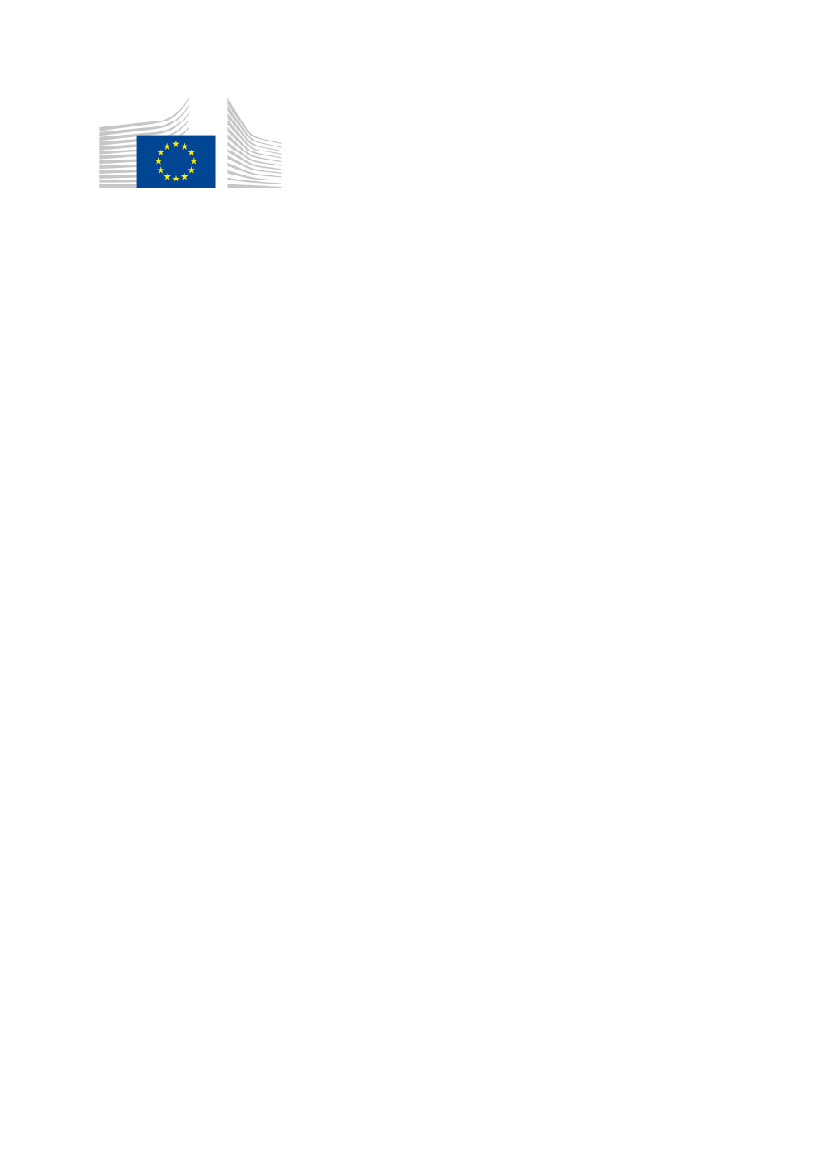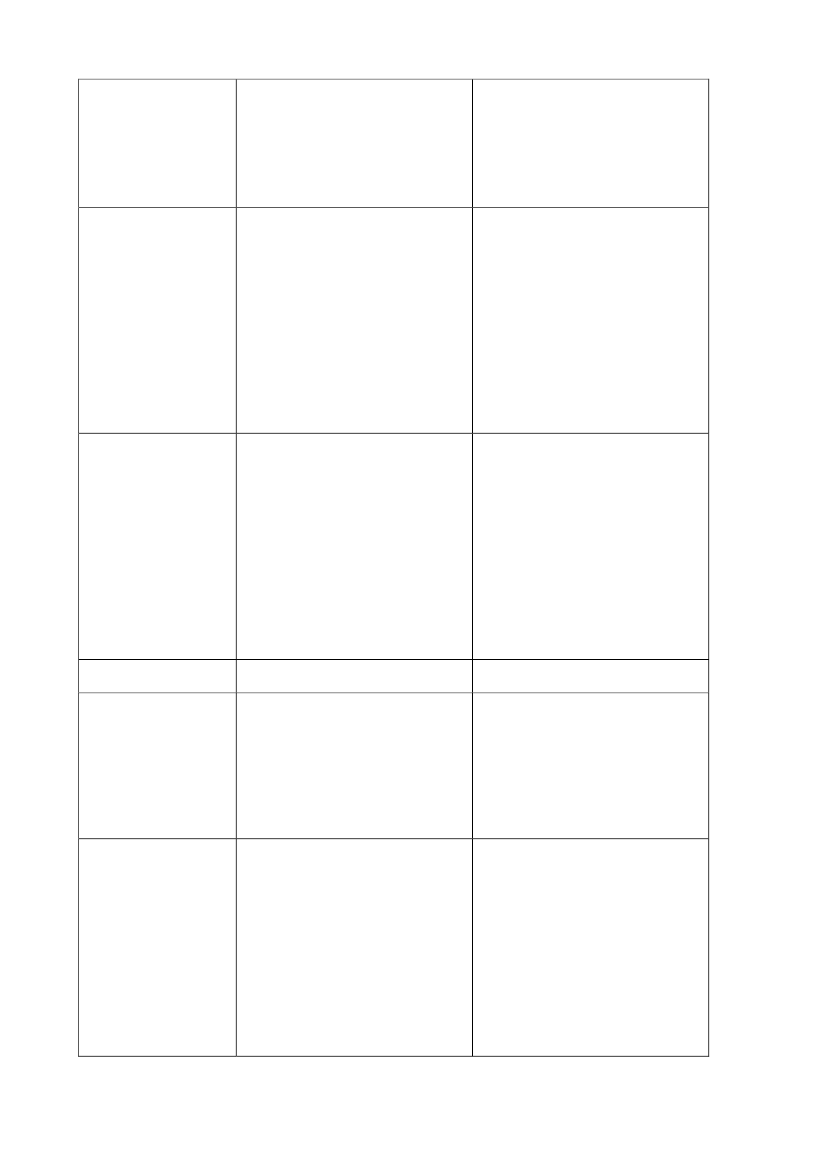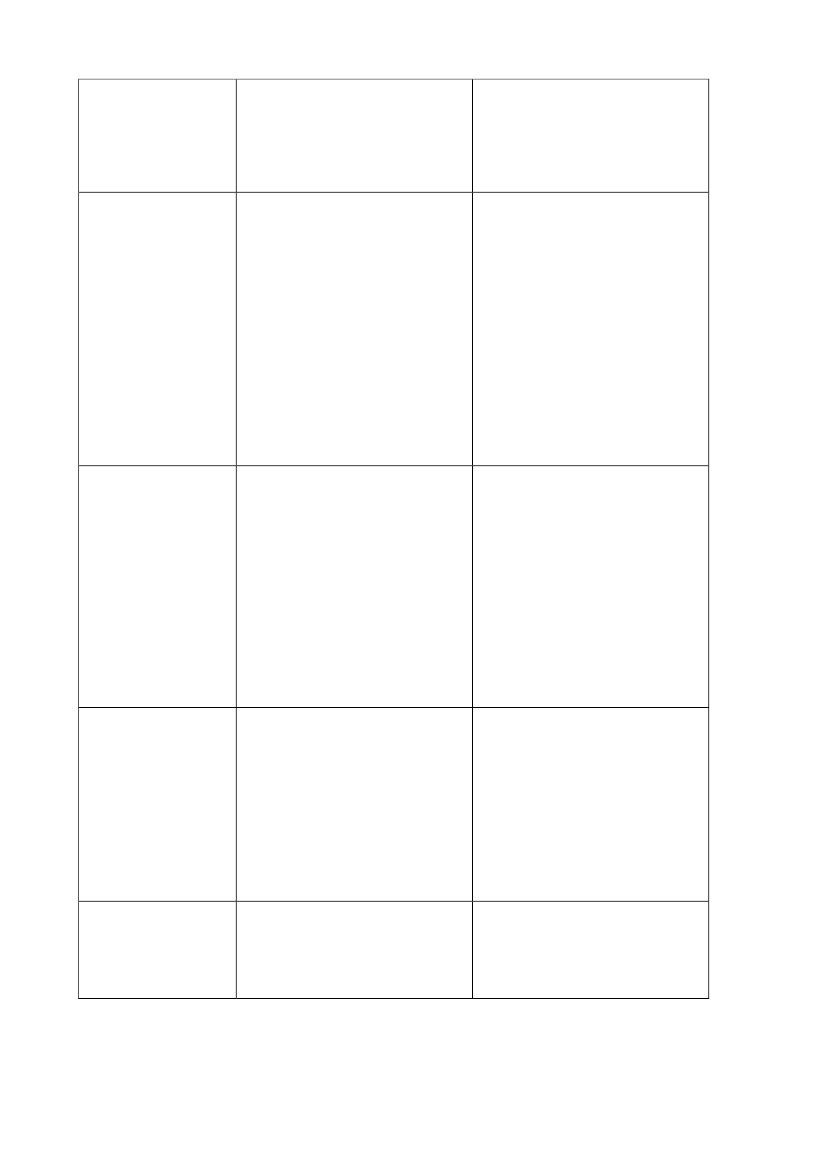Udenrigsudvalget 2012-13
URU Alm.del Bilag 110
Offentligt
EUROPEANCOMMISSION
Brussels, 27.2.2013COM(2013) 92 final
COMMUNICATION FROM THE COMMISSION TO THE EUROPEANPARLIAMENT, THE COUNCIL, THE EUROPEAN ECONOMIC AND SOCIALCOMMITTEE AND THE COMMITTEE OF THE REGIONSA DECENT LIFE FOR ALL:Ending poverty and giving the world a sustainable future
EN
EN
COMMUNICATION FROM THE COMMISSION TO THE EUROPEANPARLIAMENT, THE COUNCIL, THE EUROPEAN ECONOMIC AND SOCIALCOMMITTEE AND THE COMMITTEE OF THE REGIONSA DECENT LIFE FOR ALL:Ending poverty and giving the world a sustainable future1.INTRODUCTION
Two of the most pressing challenges facing the world are eradicating poverty and ensuringthat prosperity and well-being are sustainable. Around 1.3 billion people still live in extremeincome poverty and the human development needs of many more are still not met. Two-thirdsof the services provided by nature – including fertile land, clean water and air – are in declineand climate change and biodiversity loss are close to the limits beyond which there areirreversible effects on human society and the natural environment.These challenges are universal and inter-related and need to be addressed together by allcountries. It is not sufficient to address the challenges separately – a unified policy frameworkis needed. Such an overarching policy framework is needed to mark out a path from povertytowards prosperity and well-being, for all people and all countries, with progress remainingwithin planetary boundaries. It should also be closely related to issues relating to governance,human rights and peace and security issues, which are enabling conditions for progress. It isestimated that 1.5 billion people are living in countries experiencing significant politicalconflict, armed violence, insecurity or fragility.In autumn 2013, a UN special event will take stock of the efforts made towards achieving theMillennium Development Goals (MDGs), discuss ways to accelerate progress until 2015 andstart exchanging on what could follow after the MDG target year of 2015. In addition, thecommitments made at the Rio+20 Conference in June 2012 need to be implemented,including through actions towards an inclusive green economy. Furthermore, it will benecessary to build further on this progress through the Open Working Group that wasestablished in Rio. All of these inputs will provide input for the development of a post-2015overarching framework.This Communication proposes a common EU approach to these issues. To do this, it firstidentifies the main global challenges and opportunities. It then turns to evaluate the success ofglobal poverty eradication agenda and the experience of the MDGs, as well as outlining someof the key steps towards sustainable development as agreed in Rio+20, and outlining keyactions. It then describes the challenges and elements for a future framework that can bedrawn from the experience of the MDGs and the work stemming from Rio+20, in particularthe elaboration of Sustainable Development Goals (SDGs), and indicates how these can bebrought together within relevant UN processes.Based on these considerations, it proposes principles for an overarching framework for post-2015 which would provide a coherent and comprehensive response to the universal challengesof poverty eradication and sustainable development in its three dimensions, thereby ensuring aDecent Life for All by 2030.
EN
2
EN
2.
NEW GLOBAL CONTEXT,NEW CHALLENGES,NEW OPPORTUNITIES
The world has undergone enormous change over recent years, including major shifts in theglobal economic and political balance, increased global trade, climate change and depletion ofnatural resources, technological change, economic and financial crises, increasedconsumption and price volatility of food and energy consumption, population changes andmigration, violence and armed conflict and natural and man-made disasters, and increasedinequalities. New actors, including private and other non-governmental players, have arisen inthe global arena.While developed and emerging economies account for most of global GDP, the latter havenow become the key drivers of global growth and already have a significant impact on theworld economy. Trends suggest that the balance is expected to shift further; by 2025, globaleconomic growth should predominantly be generated in emerging economies, with sixcountries expected to collectively account for more than half of all global growth.Unemployment remains a worldwide challenge. Some 200 million people are out of a job,among them 75 million young people. Rates of female participation in the labour market oftenremain low, while social services remain limited. Furthermore, some 621 million youngpeople worldwide are not in school or training, not employed and not looking for work,risking a permanent exclusion from the labour market. Undeclared work and the fundamentalsfor decent work, including rights at work and social dialogue, are problems in many countries.Most poor people in developing countries are engaged in small-scale farming or are self-employed. Many poor people in these countries are working in unsafe conditions and withoutthe protection of their basic rights. Only 20% of the world population has access to adequatesocial protection.At the same time, inequalities within countries have increased in most parts of the world. Themajority of the poor now live in middle income countries, in spite of their fast growth.Achieving poverty eradication in such countries appears to be one of the major challenges.However, longer term projections indicate that by 2050 the locus of poverty might again beconcentrated in the poorest and most fragile countries.More than 1.5 billion people live in countries affected by violent conflict. Violence destroyslives and livelihoods and often affects women and people in vulnerable situations, such aschildren and people with disabilities. The gap between fragile, violence-affected countries andother developing countries is widening. In April 2011, no low-income fragile or conflict-affected country had achieved a single MDG and few are expected to meet any of the targetsby 2015. Poor governance, including a lack of democracy, rule of law and respect for humanrights, is currently hampering efforts towards poverty eradication and sustainabledevelopment.In addition, there is overwhelming scientific evidence and consensus that the unsustainableuse of the natural resources is one of the greatest long term threats to humankind. The effectsof environmental degradation and climate change are already being felt and threaten to undomuch of the progress already made in eradicating poverty, and so do natural disasters. We arenot on track to keep temperature increases within 2�C above the temperature in pre-industrialtimes, the threshold beyond which there is a much higher risk that catastrophic impacts onnatural resources will occur, posing risks to agriculture, food and water supplies and thedevelopment gains of recent years. At the global level, the challenge will be to adapt and tomitigate impacts, including through the reduction of greenhouse gas emissions.Already today, climate change, depletion of natural resources and ecosystem degradation arehaving a significant impact on livelihoods, for example through the increased number and
EN
3
EN
intensity of natural disasters and the depletion of natural capital and infrastructure. Since1992, natural disasters have caused € 750 billion of damage and killed 1.3 million people. Theeffects of unsustainable patterns of current economic development are still largely determinedby developed countries and increasingly by emerging economies, while poorer countries aredisproportionately impacted and have the least resources to cope with negative effects1. Thesecountries are also often particularly dependent on natural resources, in particular for sectorssuch as agriculture, forestry, energy and tourism, which aggravates their vulnerability todegradation and depletion.Development and growth contribute to human prosperity and well-being, but also toenvironmental challenges, such as resource depletion and pollution, which are likely tobecome more acute over time. These negative effects are mostly determined by the 5.7 billionpeople thatdo notlive in extreme income poverty, which leads to a significant increase inglobal demand and consumption, putting additional strain on natural resources. Progresstowards an inclusive green economy through sustainable consumption and production patternsand resource efficiency, including in particular low emission energy systems, is thereforeessential.In order to satisfy increasing demand, it is estimated that global agricultural production in2050 will have to increase by 60% over 2005 levels, putting increasing pressure on already-scarce natural resources, in particular land, forests, water and oceans. At the same time, thereare indications that up to half of global food production is wasted. Given urbanisation andpopulation growth, water use is projected to increase by 50% by2025, by which time roughly5.5 billion people – two thirds of the projected global population – will live in areas facingmoderate to severe water stress.Looking ahead, these challenges must be viewed in the context of demographic trends: it isprojected that the world population will reach more than 9 billion by 2050, with thepopulation of sub-Saharan Africa set to more than double. Together, Africa and Asia willrepresent nearly 80% of the world's population by 2050. The increase in the world's medianage is expected to affect developing countries most, with consequences for health services andpensions, as well as tax revenues.It is in this context that the follow up to Rio+20 and the MDG review special event take place.We need to keep in mind that the challenges are interrelated and require a coherent andcomprehensive response, supportive also of other international processes, such as climate andbiodiversity negotiations.3.3.1.BUILDING ON THE ACHIEVEMENTS OF THEMDGS ANDRIO+20Taking stock of MDG achievements
The EU remains committed to doing its utmost to help achieve the MDGs by 2015, in linewith its policy framework as set out in the Agenda for Change2and the European Consensuson Development3.The MDGs embody a fundamental global agreement to end poverty and to further humandevelopment. They have in the last decade proven to be a valuable tool to raise public
1
23
Least Developed Countries comprise more than 880 million people (about 12 per cent of worldpopulation) but account for less than 2 % of world GDP.COM(2011) 637 final2006/C 46/01
EN
4
EN
awareness, increase political will and mobilise resources to eradicate poverty. Impressiveprogress has been made:•••••According to the World Bank,the share of people living on less than USD 1.25 a day(2005 prices) fell from 43% in 1990 to 22% in 2008. It is likely that the target to halve theproportion of people living in extreme poverty was reached in 2010.The target to halve the proportion of the population without access to safe drinking waterwas achieved globally in 2010 – between 1990 and 2010 over two billion people gainedaccess.Globally, primary school enrolment has increased to an average of 89%, with girls nowalmost as likely to be enrolled as boys.Children are significantly less likely to die of disease or malnutrition.Global HIV infections continue to decline and access to anti-retroviral drugs has expandedwidely.
The global partnership for development has complemented national efforts towards theMDGs. Since 2000, annual global Official Development Assistance (ODA) has increased bynearly 70%, to EUR 96 billion, and the share of ODA going to Least Developed Countries(LDCs) has more than doubled. The EU and its Member States collectively are the largestdonor, providing an annual EUR 53 billion in ODA (2011), or more than half of global ODA.In parallel, the implementation of the aid and development effectiveness principles and targetshas contributed to greater ODA impact. The phenomenal growth in trade has been a majorfactor in progress: between 2000 and 2009 developing country exports rose by 80%,compared to 40% for the world as a whole The EU is the biggest trading partner fordeveloping countries and has led the way in granting duty-free and quota-free access to allLDC products, under the Everything But Arms initiative. Furthermore, EU-funded research,such as through the European and Developing Countries Clinical Trials Partnership, has alsocontributed to the achievement of the MDGs.Challenges to the achievement of the MDGs however remain, with sub-Saharan Africa inparticular lagging behind. Globally, 1.3 billion people still live in extreme income poverty.More than 850 million people do not have enough to eat. About 61 million children are stillout of school. Women continue to be the subject of discrimination and confront severe healthrisks, in particular to maternal health and their sexual and reproductive health and rights.Violence affects one third of all women in their lifetime and undermines efforts to reach anyMDG. An estimated 2.5 billion people are without access to decent sanitation facilities and780 million people still lack access to clean and safe drinking water. 7 million people livingwith HIV/AIDS still do not have access to treatment. The world is still far from reaching thetarget of full and productive employment and decent work for all. Only 20% of the world'spopulation has access to adequate social protection. Unsustainable use and management of theEarth's limited resources puts at risk the lives and well-being of future generations.In addition, success is unevenly distributed not only between countries – in particular with astriking lack of progress towards the MDGs in fragile and conflict affected states – but alsowithincountries - including those that already have the means to provide better lives andfutures for their population.Yet the overall picture, especially in view of technological advances and economic progressachieved by many emerging and developing countries since the MDGs were developed,shows that elimination not just reduction of poverty in a single generation is within reach.
EN
5
EN
3.2.
Main Rio+20 outcomes and commitments
The Rio+20 Conference confirmed a common global vision for an economically, socially andenvironmentally sustainable future for the planet and for present and future generations andunderlined that many challenges remain to be addressed. Rio+20 recognised the greeneconomy in the context of sustainable development and poverty eradication as an importantpathway for achieving sustainable development, set in motion a process to develop universalsustainable development goals (SDGs) and agreed to take action towards sustainabledevelopment. These actions will also help inform the process of developing SDGs and will, inthe longer term, also contribute to their realisation. Rio+20 also agreed to reform theinstitutional framework for sustainable development, to set in place a structure that candeliver the follow-up to the Conference and to work further on means of implementation. It isimportant that the EU now implements promptly the commitments taken at Rio, activelyengages in these processes and takes the necessary action both within the EU andinternationally.3.3.Implementation: Actions at EU and international levelThe EU will continue to pursue the sustainable development, including byimplementingRio+20 commitments through a range of overarching policies, in particularthrough its overarching strategy for smart, inclusive and sustainable growth - Europe 2020.This covers, inter alia, resource efficiency, low carbon economy, research and innovation,employment, social inclusion and youth. The implementation and regular review of theEurope 2020 Strategy, which builds on the integrative approach initiated by the EU Strategyfor Sustainable Development, should contribute to greater coherence, mainstreaming andintegration of the three dimensions of sustainable development in EU policies at large.Sustainable development objectives will be made operational through a range of key policiesunder preparation, including the reform of the Common Agricultural and the CommonFisheries Policies, the forthcoming 7th Environmental Action Programme, the InnovationUnion, Horizon 2020 and the Social Investment Package.The EU has consistently provided development cooperation in order to contribute to the fullimplementation of the MDGs. Through its external action and notably the implementation ofthe Agenda for Change, the EU will continue facilitating progress towards the MDGs andsustainable development in developing countries, with a specific focus on the least developedand the ones most in need. At the same time, a number of actions need to be carried out inorder to contribute to the implementation of Rio+20 commitments.The main current EU activities to implement Rio+20 are brought together in Annex I.3.4.Institutional frameworkimplementationforsustainabledevelopmentandmeansof
Rio+20 started a process to reinforce the institutional framework for sustainable development,including strengthening the role of the UN General Assembly (UNGA) and ECOSOC. Amajor decision was to establish a High-Level Political Forum (HLPF) on sustainabledevelopment, which will replace the UN Commission on Sustainable Development. TheHLPF will follow up and review progress in the implementation of the outcomes of Rio+20and is also mandated to strengthen the science-policy interface, which will be crucial for theimplementation of SDGs. It should be directly linked to ECOSOC, currently under reform,and work at a higher political level (UNGA) at regular intervals. These linkages provide anopportunity to enhance coherence with the on-going work on the review of the MDGs anddiscussions on development post-2015.
EN
6
EN
Another important outcome of Rio+20 was the decision to strengthen and upgrade the UNEnvironment Programme (UNEP) and, in particular, the decision on universal membership forits Governing Council. This has now been confirmed by the decision on new institutionalarrangements for UNEP at its recent Governing Council. The decision to establish a UNEnvironment Assembly is an important step forward, consistent with the EU's ambition totransform it in the longer term into a UN agency. The EU will take an active role inimplementing this revised institutional framework. Ensuring the appropriate participation ofthe EU in both the HLPF and the reformed UNEP will be a priority.Rio+20 also decided to promote clean and environmentally-sound technologies and toestablish an intergovernmental expert committee to prepare options for a sustainabledevelopment financing strategy. The committee needs to ensure coherence and coordinationand avoid duplication of efforts as regards the financing for development process. The EUwill participate in this process in line with the overall approach to financing and other meansof implementation, as indicated below.3.5.Public Consultation
A number of public consultations and dialogues have been held by the Commission on futureperspectives of poverty eradication and sustainable development. These consultations havehelped guide a number of aspects of proposals contained in this Communication. An overviewof these consultations is outlined in Annex II. The Commission will continue active dialogueon all these issues with all stakeholders and civil society.4.INTEGRATING SUSTAINABLE DEVELOPMENT AND POVERTY ERADICATION IN A POST-2015OVERARCHING FRAMEWORK
At international level and at the UN, much of the work on poverty eradication and sustainabledevelopment has been carried out in separate strands within different communities – onestemming from the Millennium Declaration and the other from the series of UN summits onsustainable development. In reality, these two strands have always had common elements; forexample, the MDGs address environmental issues through MDG7 and sustainabledevelopment has always placed poverty eradication as a priority objective.In order to effectively address the challenges of poverty eradication and sustainabledevelopment, as a major and interlinked global challenge, the review of MDGs and the workon elaborating SDGs need to be brought together towards one overarching framework withcommon priority challenges and objectives, so as to ensure a decent life for all by 2030 andgive the world a sustainable future beyond it.In autumn 2013, a UN special event will take stock of the efforts made towards achieving theMillennium Development Goals (MDGs), discuss ways to accelerate progress before 2015and exchange views on what could follow after the MDG target year of 2015. The firstsession, in September 2013, of the High Level Political Forum established by the Rio+20Conference will in addition look at the follow-up to the commitments made at Rio+20 in June2012. It will also be necessary to progress through the Open Working Group on SustainableDevelopment Goals (SDGs) that were established in Rio. All of these inputs will provide theframework for the agreement of a Post-2015 Overarching Framework.In order to further elaborate thinking on goals, the EU will continue its open dialogue with allrelevant stakeholders. This will contribute to the EU's active input into the work of the OpenWorking Group on SDGs, which will make recommendations for action to the UN GeneralAssembly.
EN
7
EN
This section describes the lessons learnt from the MDG review and the work on theelaboration of SDGs and the kinds of priority elements that emerge from both of these. Thenit indicates briefly in practical terms how these can be brought together within relevant UNprocesses. Then, based on this, some of the key principles of an overarching framework arebrought together in the final section.4.1.Priority elements for the overarching frameworkDrawing on MDG experience and the work stemming from Rio+20 on sustainabledevelopment and considering current trends, the EU considers that a number of challengescan be identified for the post-2015 overarching framework.There is a fundamental link between global environmental sustainability and povertyeradication. It will not be possible to eliminate poverty and ensure a decent life for allwithout, at the same time, addressing global environmental sustainability, and the other wayaround. Climate change, natural disasters, biodiversity loss and the degradation of oceans,freshwater sources, land and soil have a particularly negative impact on the world’s poorestpopulations. To be able to act on these issues, the overarching framework needs to act as acatalyst for good governance, transparency, social cohesion and the empowerment of women,in all countries and internationally, all of which are essential for sustainable development andthe eradication of poverty.As agreed in the Rio+20 outcome document, goals for sustainable development (SDGs)should be universally applicable to all countries, while taking into account different nationalrealities, capacities and levels of development and respecting national policies and priorities,should incorporate the three dimensions of sustainable development and should be action-oriented, concise and easy to communicate and limited in number. The EU proposals made inthe run-up to Rio+20, indicated that they should also focus on resources which representpublic goods and basic "pillars of life," such as energy, water, food security, oceans,sustainable consumption and production, as well as social inclusion and decent work. At thesame time, goals should also be coherent with existing international agreements, such as goalsand targets on climate change and biodiversity, as well as social protection floors.They should address the three overarching objectives of sustainable development: povertyeradication, changing unsustainable consumption and production patterns and protecting andmanaging the natural resource base of economic and social development.Post-2015 goals would need to span into the future and aim at laying the drivers to achieve asustainable future: with a shared vision for 2050, goals and targets should aim at the timescaleof 2030.Given that the framework should have both poverty eradication and sustainable developmentas its overall objectives, the priority challenges need to address both perspectives drawingfrom the above. Based on this reasoning, the framework could be constructed around anumber of main elements: ensuring basic living standards; promoting the drivers for inclusiveand sustainable growth as well as ensuring sustainable management of natural resources;while promoting equality, equity and justice; and peace and security. In addition, whilst thechallenge of addressing planetary environmental boundaries will require an integratedresponse that will impact on all these elements, and will have to be addressed in some ofthem, it will also require specific action in its own right. It can therefore also be seen as anadditional cross-cutting ingredient of an integrated post-2015 overarching framework.4.1.1.Basic living standardsThe MDGs have provided a framework for human development, setting targets such asminimum income, freedom from hunger, full and productive employment and decent work for
EN
8
EN
all, access to primary education, basic health outcomes, access to water and sanitation, all ofwhich form the very basis of a decent life.We need to finish the unfinished business of the current MDGs, filling gaps and learning thelessons. For example, we need to address broader issues of education and health and includesocial protection. Aggregate averages have hidden national inequalities caused by extremepoverty, geographic location or marginalisation. We must move from purely quantitativegoals to address quality, for example in education and health. There must be a floor underwhich no man, woman or child should fall by the very latest in 2030: standards by whichevery citizen should be able to hold her or his government to account. We should aim atempowering people to lift themselves out of poverty. Goals to stimulate action to deliver keystandards in education, nutrition, clean water and air will help eradicate hunger and improvefood security, health and well-being. Goals should also stimulate action to deliver productiveemployment and decent work for all, including youth, women and people with disabilities,depending on countries' levels of development. Unlike the existing MDGs, they should applyto every country and not only be a global target without individual country responsibilities.Each country has the responsibility to ensure progress towards internationally agreed goals.4.1.2.Drivers for inclusive and sustainable growthThe Commission's public consultation, as well as experience by countries that have succeededin pulling themselves out of poverty, demonstrate the vital role played by key drivers forinclusive and sustainable growth, in particular in providing essential human developmentservices and creating growth and decent jobs. Structural transformation should be sought byall countries in all stages of development, to allow for market-friendly, open economies thatpromote inclusive and sustainable growth, improve productive capacities, promote privatesector development, investment and wealth creation, promote the transition towards theinclusive green economy and ensure that the benefits are widely shared. Goals would helpstimulate opportunities for more inclusive and sustainable growth, supported by indicatorslooking beyond GDP. Many countries would be able to use these to focus on social cohesionas well as more sustainable agriculture, fisheries and aquaculture, to deliver better nutrition,overcoming water scarcity and avoiding food waste. Others would deliver more resourceefficient production, economising on water and reducing and recycling waste. A goal ofmoving towards sustainable, resilient cities would deliver improvements in air quality, water,energy, accessible infrastructure, housing and transport, leading to solutions that link withemployment, health, economic development and also address climate change adaptation anddisaster prevention and preparedness. Other important drivers include sustainable energy,science and technology, telecommunications services, financial services and infrastructure,for example facilitating access to markets, as well as migration and mobility. All these aspectsrequire an enabling and stable environment for business, entrepreneurship, innovation andproductive employment to thrive.While economic transformation is necessary, it is also a huge challenge: billions in newinvestment will be needed4. However, experience in countries that have made huge strides inproviding these services to their citizens and recent global initiatives – such as SustainableEnergy for All and Scaling Up Nutrition – have demonstrated that such an approach canprovide promising results, catalysing rapid growth and investment.4
For example, the International Energy Agency estimates that to provide sustainable energy services toall by 2030, approximately an additional EUR 30 billion per year will need to be invested above thebusiness-as-usual scenario. The FAO estimates that more than USD 50 billion per year of additionalpublic expenditure on agriculture and safety nets would be needed to reach a world free of hunger in2025.
EN
9
EN
4.1.3.
Sustainable management of natural resources
Sustainable management and use of natural resources is essential to support economic growthand employment, in particular in primary production sectors like agriculture, fisheries andforestry or services sectors such as tourism. 70% of the world's poor live in rural areas anddepend directly on biodiversity and eco-system services for their survival and well-being,making them more vulnerable to scarcity and climate risks. Good stewardship of naturalresources, based on transparency, accountability and good governance, is essential for povertyeradication and developing sustainably towards an inclusive green economy. Action is neededto promote corporate sustainability reporting, which will encourage a broad range ofbusinesses to engage in responsible practices. Goals to move towards a land degradation-neutral world would contribute to economic growth, biodiversity protection, sustainable forestmanagement,climate change mitigation and adaptation and food security, while improvingsoil quality, reducing erosion, building resilience to natural hazards and halting land take.Given the global importance of oceans, protecting and restoring the health of oceans andmarine ecosystems for sustainable livelihoods goals should apply universally, helping deliversustainable fish stocks also with a view to food security, as well as reducing significanthazards such as marine litter. To address these challenges, each country should steer a path tothe sustainable management of their natural resources and establish open and transparentgovernance structures, to ensure that resources are used in a manner that benefits their citizensin an equitable and sustainable way.This requires each country to ensure that resources are used in an environmentally responsiblemanner and, with respect to resources such as land, forests, rivers and oceans, so that they willalso benefit future generations. Equally, exploitation of finite resources, such as minerals andgroundwater, must be done in an inclusive and responsible manner that guarantees maximumsocietal benefit, in terms of the way that they are commercialised, the rate of their depletionand the use of the income generated. Phasing out subsidies for use of finite resources, such asfossil fuels, is a cost-efficient key contribution, promoting resource efficiency. States shouldalso enhance their cooperation to manage shared resources, such as fish stocks and marinebiodiversity, in areas beyond national jurisdiction.It will also be necessary to adopt an integrated perspective, in order to ensure that solutions toresource constraints in one area do not place additional constraints on another. The futureagenda should commit all countries to manage and use their natural resources sustainably overthe coming decades, including such issues as transparency, maximisation of income,protection of tenure, resilience5, including to natural disasters, and environmental protection.The global community needs to stand together in these efforts. In particular, private andpublic companies must be accountable and adhere to high standards of transparency and goodgovernance. A low carbon and resource efficient economy will also require actions andtraining for the specific skill sets that will be needed.4.1.4.Equality, equity and justiceThe objectives of human well-being and dignity for all are enshrined in the UniversalDeclaration of Human Rights and the Millennium Declaration, which also explicitly recognisethe links between human rights, good governance and sustainable development. This, as wellas the commitment to common fundamental values, was reaffirmed at the MDG Summit of2010 and the Rio+20 Conference in 2012.
5
COM(2012)586: The EU Approach to Resilience: Learning from Food Security Crises
EN
10
EN
The importance of justice and equity, human rights, democracy and other aspects of goodgovernance goes far beyond their impact on progress towards development targets on income,education, health and other basic needs. They are also important in their own right, in allcountries. The recent movements in North Africa and the Middle East showed the importanceof inclusive political systems, justice and jobs, particularly for young people, and highlightedthat progress on the MDGs is essential but not sufficient. Governance will remain a globalchallenge for the years ahead.It is important that the new post-2015 overarching framework captures these issues. The roleof women is particularly important in unlocking the drive for sustainable development and allforms of barriers to equal participation need to be removed. The framework should putparticular emphasis on moving towards a rights-based approach to development, on reducinginequalities, as well as on the promotion and protection of women's and girls' rights andgender equality, transparency and the fight against corruption. It should also capture thefundamental issues related to equity. To meet this challenge, goals and targets shouldstimulate action needed to ensure increasing coverage by a basic set of social guarantees andimprove their implementation.4.1.5.Peace and securityWhere there is physical insecurity, high levels of inequality, governance challenges and littleor no institutional capacity, it is extremely difficult to make sustainable progress on the keyMDG benchmarks such as poverty, health, education or sanitation. It is therefore essential toaddress the root causes of such conditions and take action to prevent them from arising.This agenda goes beyond fragile states, however, since many other countries also strugglewith issues relating to insecurity and violence. Trafficking, transnational terrorism, criminalnetworks and gang violence are undermining the security of citizens and reducing theprospects for a decent life, with women and children particularly affected.Addressing peace and security issues in the context of the post-2015 overarching frameworkshould use as a starting point the work already done between some fragile states and theOECD countries, the EU, the UN and Development Banks at Busan in November 2011. Thisshould build on the New Deal for Engagement in Fragile States that laid out an agreed set ofPeace-building and State building Goals (PSG).5.5.1.TOWARDS A POST-2015OVERARCHING FRAMEWORKBringing the strands together to respond to future challenges
Poverty eradication and ensuring that prosperity and well-being are sustainable remain themost pressing challenges for the future. To be tackled successfully, they must be tackledtogether, within a new overarching framework that is universal and directly relevant to allcountries, while recognising that different countries are affected to varying degrees and thattheir responses and contribution to global goals will vary. Even though many will continue torise above the level of extreme poverty, a strong poverty focus is needed to make thisirreversible. Unsustainable patterns of current economic development, impacting theenvironment and the natural resource base, are still determined to a large extent by developedcountries, and increasingly by emerging economies, while least developed countries also feelthe impacts. Social exclusion and inequality, unemployment, precarious employment and lackof social protection also have a direct bearing on poverty and sustainable development.The Millennium Declaration, which remains relevant, should guide work on developing thefuture framework. Building on the follow up to Rio+20, the MDG review and other relevantinternational processes, the future overarching framework should set out the path for
EN
11
EN
eradicating poverty and towards achieving prosperity and well-being for all, by focusing onthe main drivers for inclusive and sustainable growth, within planetary boundaries. Thisframework should therefore bring together the three dimensions of sustainable development:economic, social, environmental. It should include responsibilities for all countries.The underlying objective of this new overarching framework should aspire to provide forevery person, by 2030, "A Decent Life for All." This should address simultaneously the needfor poverty eradication and the universal vision of sustainable development needed to ensureprosperity for current and future generations.The above sections outlined how the interrelated processes at the UN level should deliveringredients for a common overarching framework that are needed if the objective of a DecentLife for All is to be met. The final outcome should be based on the results of constructiveinteractions with all stakeholders and among international partners. However, the EU believesthere are a number of already- identifiable general principles that should be commonlyacceptable.5.2.Principles for a post-2015 overarching frameworkThe Commission proposes that the EU pursues the following principles in its discussions onthe post-2015 framework:5.2.1.ScopeThe framework should be universal in aspiration and coverage, with goals for all countries,applying to all of humanity, focused on the eradication of poverty in all its dimensions,wherever it is found, and promoting prosperity and well-being for all people, within planetaryboundaries.•The framework should integrate the three dimensions of sustainable development -economic, social, environmental - taking into account the lessons learnt from the reviewof MDGs and building on the work for elaborating the SDGs, aiming at povertyeradication and sustainable development. Goals should constitute a floor to livingstandards under which no person should fall, by 2030 at the very latest, and guide progresstowards prosperity and well-being, within planetary boundaries.It should recognise that poverty, prosperity and well-being cannot just be seen from afinancial perspective, but are multidimensional and reflect the ability of people to growand develop.The framework should cover, in an integrated fashion:••basic human development (based on updated existing MDGs and also reflecting issuessuch as social protection),drivers for sustainable and inclusive growth and development that are necessary forstructural transformation of the economy, needed to ensure the creation of productivecapacities and employment and the transition to an inclusive green economy capable ofaddressing climate challenges, andthe sustainable management of natural resources .
••
••
The framework should also address justice, equality and equity, capturing issues relatingto human rights, democracy and the rule of law, as well as the empowerment of womenand gender equality, which are vital for inclusive and sustainable development, as well asimportant values in their own right. It should also address peace and security, building onthe existing work on Peace Building and State Building Goals.
EN
12
EN
5.2.2.•
Nature and number of goals
•
Goals should be limited in number and apply universally to all countries, but should havetargets respecting different contexts. In order to ensure ownership and relevance, the goalsshould be tailored and made operational at the national level. Special consideration shouldbe given to the needs of fragile states.Goals should be elaborated in a way that takes into account the scientific and researchevidence base and related targets and indicators should be measurable.Transparency, implementation and accountabilityThe responsibility for achieving the desired outcomes is first and foremost national. Themobilisation of all resources is needed, domestic and international, private and public.Financing and other means of implementation should be addressed in a comprehensiveand integrated manner, given that the potential sources for implementing various globalgoals are the same.The framework should be developed and implemented in close partnership with civilsociety stakeholders, including the private sector.A time frame should be set to start acting at all levels in order to achieve the goals. Thiscould have a vision towards 2050 with goals and targets for 2030.The framework should be based on the individual responsibility of countries to takeaction, coupled with partnership between all countries and stakeholders. Goals shouldprovide incentives for cooperation and partnerships among governments, civil society,including the private sector, and the global community at large. All countries shouldcontribute their fair share towards reaching the goals. Goals should also induce strongeraccountability.The development of the framework should be accompanied by efforts to enhancecoherence at the institutional level.To allow good monitoring of progress, the statistical base should be strengthened.CoherenceThe framework should be coherent with existing internationally-agreed goals and targets,such as on climate change, biodiversity, disaster risk reduction, and social protectionfloors.Implementing the framework: country ownership and accountability
5.2.3.•
•••
•••
5.2.4.
5.3.
The responsibility for implementing the future framework lies within each country itself,involving all relevant stakeholders, including social partners. The main drivers fordevelopment are first and foremost domestic, notably including democratic governance, therule of law, stable political institutions, sound policies, transparency of public finances andthe fight against fraud and corruption. Domestic resource mobilisation, legal and fiscalregulations and institutions supporting the development of the private sector, investment,decent job creation and export competitiveness are essential to make the ambition achievablefor all countries. In this context, domestic reforms are crucial to make economic growthsustainable and make it work effectively for poverty eradication, decreased inequalities andimproved well-being for all. This is true for all countries, at all levels of development.Nevertheless, the EU recognises that some countries will continue to need support, includingdevelopment assistance. In this context, more efficient and effective methods of investingdevelopment aid are emerging, ensuring that aid acts as a catalyst for development, leveraginginvestment, including through innovative financial sources, instruments and mechanisms,such as blending. This updated approach was adopted in the EU's "Agenda for Change."
EN
13
EN
South-South cooperation can make substantial contributions to shaping global developmentoutcomes. The principles of the Global Partnership for Effective Development Cooperation,agreed at the Busan High Level Forum on Aid Effectiveness in 2011, should be applieduniversally.Beyond aid, Policy Coherence for Development plays a major role in eliminating poverty andachieving sustainable development. Strong consideration of the role of these policies shouldtherefore be given due place in the future framework. For example, in many developingcountries, the income available from trade has greatly increased and can be used to fightpoverty. This trend is set to continue in many developing countries and is especially importantin sub-Saharan Africa.To be achievable, the overarching framework should be accompanied by an effort to ensurethatallresources are mobilised and harnessed effectively, alongside a commitment by allcountries to pursue a comprehensive approach to these resources and coherent and appropriatepolicies. Goals and targets will contribute to stimulating private sector investment. Allcountries should report on progress towards achieving future goals in an open and transparentmanner.The EU should promote a comprehensive and integrated approach to the means ofimplementation including financing issues at the global level. At present, financingdiscussions related to climate, biodiversity, development and sustainable development aretaking place in different fora, even though the potential financing sources are the same. Thereis a strong need to ensure coherence and coordination and avoid a duplication of efforts withregard to the financing for development process. In mid-2013, the Commission plans topresent a Communication proposing an integrated EU approach to financing and other meansof implementation related to the various global processes.6.NEXT STEPS
The EU needs to engage fully in the forthcoming international processes with coherent andcoordinated inputs at the UN and in other relevant fora.In this respect, the adoption of this Communication should be followed by a debate withCouncil and Parliament during the spring of 2013 for the development of a common EUapproach for the next stages of the ongoing processes, which should:••ensure a comprehensive follow up to Rio+20 and guide the EU position at the UN OpenWorking Group (OWG) on SDGs, which will report regularly to the UNGA; andcontribute to the preparation of the UN General Assembly Special Event on the MDGs inautumn 2013, including the report of the Secretary-General and the UN High Level Panelon post-2015, as well as the first meeting of the HLPF.
The EU should support moving towards a post-2015 overarching framework. Discussion onthe basis of the orientations set out above should make it possible for the EU to come to acommon position on how the SDGs and the MDG review processes should best be convergedand integrated into a single process to better deliver such a comprehensive framework. In thisrespect, the EU should also actively seek a constructive dialogue with all partners andstakeholders, in order to build common ground, including through political dialogues withthird countries.
EN
14
EN
ANNEX IMain current and forthcoming actions in the EU and internationally that contribute tothe implementation of Rio+20AreaWater and sanitationEUImprove water efficiency and qualitythrough EU Water BlueprintInternationalIn line with the Agenda for Change andinternational commitments, promoteimproved access to drinking water andsanitation facilities, improved waterquality and reduced pollution; as wellas facilitation of political dialogue forsharedwaterresourcesandimplementation of water activities foreconomic and sustainable growthPromote international climate actionthrough the Durban Platform andUNFCCCInternational Partnership on Mitigation,and the International CooperativeInitiatives (ICIs)IRENA:globalrenewable energydeploymentof
Energy, climate
Improve efficiency and share ofrenewables and reduce greenhousegases through:- climate and energy package and lowcarbon roadmap for 2050- 2030 climate and energy policy- energy efficiency directive- ongoing legislative proposals onemissions from cars and vans, as wellas fluorinated GHG reduction
GEEREF: Global Energy Efficiencyand Renewable Energy FundGlobal climate(GCCA)changealliance
Sustainable Energy for All Initiative(SE4ALL)ACP-EU Energy Facility and theAfrica-EURenewableEnergyCooperation Programme (RECP)Biodiversity,landforests,EU Biodiversity Strategy to 2020,work on biodiversity valuation andecosystem servicesForest Action Plan; review of ForestryStrategyPreparationLandCommunicationasResourceCBD Strategic Plan and the 20 AichiTargetsSupport the Economics of Ecosystemsand Biodiversity (TEEB) and WealthAccountingandValuationofEcosystem Services (WAVES)Implement the Environment andNaturalResourcesThematicProgramme (ENRTP)Expand and implement Forest LawEnforcement, Governance and Tradeinitiative (FLEGT) and contribution toUN-REDD+Possibility of protocol under UNCCD,declaring the EU as an Affected PartyGlobal Soil Partnership (with FAO)Compilation of a New World Atlas ofDesertification with UNEP
Digital Observatory for ProtectedAreas as a component of the GlobalEarth Observation System of System ofSystems (GEOSS)
EN
15
EN
Oceans
Marine Strategy Framework; IntegratedMaritime Policy, Marine Litter andPlastic WasteCommon Fisheries Policy: maximumsustainable yield, science basedmanagement plans, discards.Observation and modelling of marineand coastal ecosystems
Regional sea conventionsUNCLOS Implementing agreement forthe conservation and sustainable use ofmarine biodiversity in areas beyondnational jurisdictionIllegal, unreported and unregulatedfishingFollow up to Honolulu commitment onmarine litterDiffusion of internationalpolicies (WEEE, RoHs)waste
Waste, chemicals
Resource Efficiency roadmap and EUwastelegislation,REACHimplementation
Implement Basel, Stockholm andRotterdam Conventions, and SAICM(Strategic Approach to InternationalChemicals Management)Contribution to the Agricultural MarketInformation System (AMIS)Implementation of the MonitoringAgricultural Resources (MARS) andGEO-GLAM (Earth Observation)ImplementationofVoluntaryGuidelines on the ResponsibleGovernance of Land, Fisheries andForestsEUFoodSecurityThematicProgramme Instrument (FSTP);ImplementforthcomingEUImplementation plan Boosting foodand nutrition security through EUaction: implementing our commitmentsPreparationNutritionPreparationResilienceofofCommunicationActionPlanonon
Food,agriculture
nutrition,
Preparation of CommunicationSustainable Food
on
Implement Markets in FinancialInstruments (MIFID) and MarketAbuse Directive (MAD)Proposals on the reform of theCommon Agriculture Policy, includingpromoting sustainable agriculturalproduction, addressing productioncapacity and climate change.The European Innovation Partnership"AgriculturalProductivityandSustainability"Organic food labelling
Scaling-upNutrition(SUN)Movement; New Alliance for FoodSecurity and NutritionImplementation of the Food AssistanceConventionTaxes, subsidiesImplement relevant actionsResource Efficiency RoadmapfromFollow up on subsidy reform throughG20
Clean industry and lifecycle accounting
Implement EU 2020 Industrial policy:clean technology, bio economyPreparation of CommunicationSingle Market for Green ProductsEuropean Life Cycle Databaseon
International Life-Cycle Data (ILCD)Network
EN
16
EN
Sustainableconsumption andproduction and Greenpublic procurement
RevisedProcurementincluding GPP
Directive,
Contribution to UNEP SustainablePublic Procurement InitiativeContribution to the implementation ofthe 10 Year Framework Programme onSustainableConsumptionandProductionImplement the Communication the EUapproach to resilience: Learning fromFood Crises on Resilience, andforthcoming Action Plan.Implement the SHARE and AGIRinitiatives.Promotion of resilience in internationalfora and as theme in partnerships withorganisations such as FAO, IFAD andWFP, UNISDR, the World Bank, andcivil society organisations
Adopt the European Accessibility Act
Resilience
Disaster riskmanagement
Implement EU disaster preventionframeworkIntegration of disaster risk management(prevention preparedness, response)and disaster risk assessment in EU andMS planningEuropean Flood Awareness System,European Drought Observatory
ImplementationoftheHyogoFramework for Action and elaborationof a follow-up framework for disasterrisk reduction after 2015Focus on main priorities outlined in theEUsdisasterriskreductionimplementation planSupport international initiatives such asthe World Bank-managed globalfacility for disaster risk reduction(GFDRR)
Promote disaster proofing in EUfunding instruments
Cities, tourism,transport
Enhance sustainability of EU cities aspart of the 7th EAPImplementactionstopromotesustainable and accessible tourismEU Road Safety, Clean FuelsDirective, promotion of affordable,sustainable transport
Promote sustainable,accessible cities
resilient
and
Full and productiveemployment and decentwork
Europe 2020: Employment Guidelines,Joint Employment Reports, NationalReformProgrammes,YouthEmployment package, Employmentand Social Developments in EuropeReview
Promote international labour standards,through international organisations (inparticular the ILO) in the EU's bilateralrelations, as well as throughdevelopment and trade policiesFollow-up to the 2012 InternationalLabour Conference Resolution andG20 youth employment strategyImplementation of the thematicprogramme Investing in PeopleSynergies with relevant EU thematicprogrammes, such as Non State Actors
EN
17
EN
in Development, MigrationAsylum and DemocratisationHuman RightsSocial protection, socialinclusion anderadicating povertyPromote the reduction of poverty,social exclusion and more effectivesocial policies through Europe 2020Assist Member States in structuralreforms through the Social InvestmentPackageTheEuropean PlatformagainstPovertyand Social Exclusion: AEuropeanframework for social and territorialcohesion
andand
Promote social protection includingSocial Protection Floors (SPFs) andimplement recommendations adoptedby the ILO in line with the plans andpolicies of partner countries;Continue to support social protection,including SPFs where relevant inbilateralrelationswithpartnercountries, at international fora (ILO,OECD, G20 and ASEM) and indevelopment cooperation.ImplementactionsoftheCommunication on Social Protection inEuropeanUnionDevelopmentCooperationMainstreaming of the rights of thechild and indigenous peoples’ rights,social inclusion and the rights ofpersons with disabilities in EUdevelopment policiesImplement the UN Convention on theRights of Persons with Disabilities
The European2010-2020
Disability
Strategy
Corporate SocialResponsibility
Implement ActionsSocial Responsibility
on
Corporate
Contribute to international CSRguidance documents for business andSMEs (incl. ILO, OECD) and to UNguidelinesImplement Communication on the EURole in Global HealthStrengthening of health systems,improved health security and policycoherencethroughgeographicinstruments and thematic programmesfor better health outcomes and reducedhealth inequalities.Support to the Global Fund to FightAids, Tuberculosis and Malaria, theGAVI Alliance and the GlobalProgramme to Enhance ReproductiveHealth Commodity SecurityEuropeanSystemsObservatoryonHealth
Health
EU Health StrategyEuropean Health IndicatorsCommunicationonCombatingHIV/AIDS in the European Union andneighbouring countries
Develop wellbeing indicators as part ofthe Health2020 strategyEducationStrategic framework for Europeancooperation in education and trainingEducation and training in theimplementation of the Europe 2020strategy.Promote quality education for allthrough the Commission's geographicand thematic programmesImplementation of the Commission'sinternational co-operation programmes
EN
18
EN
European cooperation on schools forthe 21st century
in higher education and trainingSupport global initiatives, such asGlobal Partnership for Education andpolicy dialogues such as Associationfor the Development of Education inAfricaMainstream gender equality and theempowerment of women in EUdevelopment policies; implement the2010-2015 EU Gender Action Plan indevelopment cooperation; contributionto the UN programme increasingaccountability on financing for genderequalityImplement actions for women’seconomic empowerment through theInvestment in People programmeImplementActionsintheCommunication Social Protection inEuropeanUnionDevelopmentCooperation
Gender equality andwomen’s empowerment
Mainstreaming of gender equality andwomen’s rights through the EU GenderAction Plan 2010-2015Follow up to Beijing Platform forAction
Justice,Human Rights,fundamental freedoms,democracy,goodgovernance and the ruleof law
EU Charter on Fundamental RightsImplement the Aarhus Convention
Implement actions set out in theCommunications on: EU Support forSustainable Change in TransitionSocieties; Increase the impact of EUDevelopment Policy and the EUStrategic Framework and Action Planon Human Rights and DemocracyImplement the EU DCI programmeNon-state Actors and Local Authoritiesin DevelopmentPromote application of Aarhus infinancial institutions, developmentcooperation, trade agreements
Science, technology,research andinnovation
Implementation of Horizon 2020providingresearch supportin areassuch as water, energy, agriculture,transport, environment, social sciences.Sustainable development will be anoverarching objective of Horizon2020 with at least 60% of totalbudget relating to this theme.Implement EU 2020 Innovation Unionand Eco-innovation Action Plan
Enhance EU international cooperationin research and innovation.Contribute to the Global EarthObservation System of System ofSystems (GEOSS)Research under the Food SecurityThematic Programme (2011-2013) andthe Africa-EU Partnership
Statistics
Further development of indicators onGDP and beyond, advice on statisticsfor overarching framework.
Cooperatewithinternationalorganisations and third countries, underthe lead of the UNSC, to improvemeasurement of progress and ensurecomparability
EN
19
EN
Trade
Negotiate and implement provisions ontrade and sustainable development intrade agreements; promote eliminationof tariffs and non-tariff barriers onenvironmental goods and services at alllevelsContinue to support “Everything ButArms” initiativeProvide continued support to Aid forTrade
EN
20
EN
ANNEX IIPublic ConsultationThe Commission held a public consultation6in the summer of 2012. Around 120organisations and individuals from public authorities and civil society, including the privatesector and academia, contributed. The consultation revealed a consensus that the MDGs haverallied many and different actors behind the same development objectives and that the MDGshave been valuable in raising public awareness, increasing political will and mobilisingresources to eradicate poverty, as well as being powerful monitoring tools.Looking forward, some common views on future priorities emerged:••••••Focus on poverty within a wider and more comprehensive and sustainable vision ofdevelopment;Integrate the three dimensions of sustainable development (economic, social andenvironmental);Ensure that the process of developing the post-2015 framework is inclusive, with stronginvolvement from poor countries and civil society;Design a universal framework, relevant for all countries and with responsibilities for all;Foster the drivers for economic growth and job creation including by engaging with theprivate sector;Improve development financing and policy coherence for development.
Furthermore, the Commission launched a public consultation7in October 2012 on Rio+20follow up. The EESC supported feedback through a series of structured dialogues. Over 125responses to the public consultation were received from individuals, public authorities,businesses and business associations, NGOs, trade unions and consumer protection groups.Based on this, a number of suggestions have been taken into account. A large number ofreplies highlighted issues related to the inclusive green economy, in particular pointing to theneed for indicators beyond GDP, while others pointed out the need for a favourable tradeenvironment, eliminating environmentally harmful subsidies and environmental taxes.The areas for possible SDGs mentioned by respondents included resource and energyefficiency, waste and chemicals, biodiversity, sustainable consumption and production, waterand sanitation, protection of oceans and fisheries, sustainable transport, sustainableagriculture, gender equality, poverty eradication, climate change and adaptation, health andfood security. Respondents also underlined the importance of clear and long-term targets onmaking use of exiting targets and agreements. On the relationship between SDGs and MDGs,there was consensus that one post-2015 development framework should be created that wouldcover both.An outreach exercise was also carried out through EU Delegations in third countries. Morethan 50 responses were received from countries. Most countries indicated the need for acoherent and coordinated way of bringing together the MDGs and SDGs.Related consultations include those which took place on the Resource Efficiency roadmap andthe consultation on the 7thEnvironmental Action Programme. The Commission has widelyengaged with civil society, including by undertaking a public consultation prior to Rio+20,and civil society also made important inputs during the conference itself.6
7
http://ec.europa.eu/europeaid/how/public-consultations/towards_post-2015-development-framework_en.htmhttp://ec.europa.eu/environment/consultations/rio20_en.htm
EN
21
EN





















